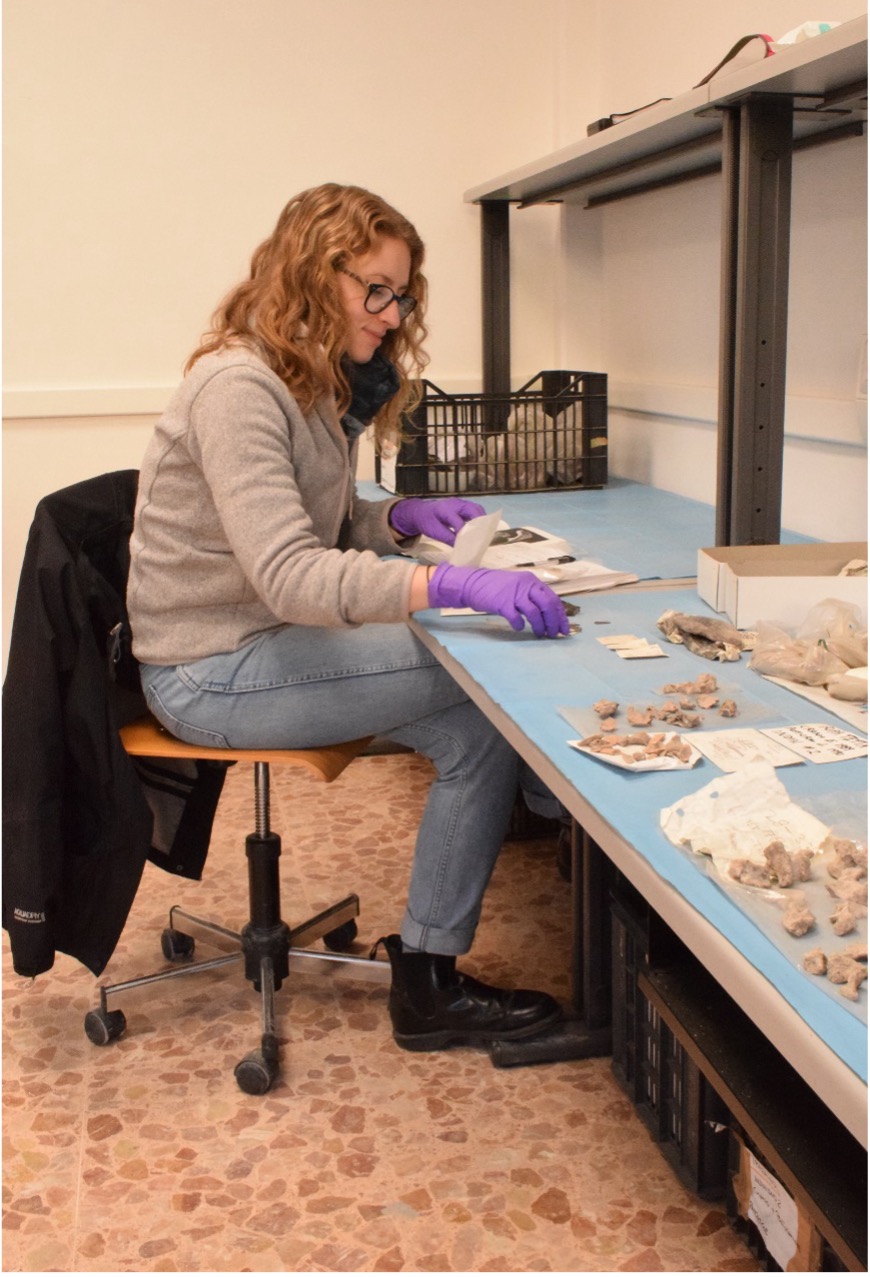CACHE Visiting Fellow Dr Jess Thompson

Dr Jess Thompson is a bioarchaeologist who specialises in the analysis of prehistoric human remains, usually from collective tombs or disarticulated contexts. As a result of spending a lot of time with complex deposits of fragmented remains, her work focuses on the relationship between funerary taphonomy—how bodies and bones became modified after death and deposition—and the ways that the living and dead interacted in past worlds, the social role of the dead, and ontologies of the body. Her work has taken her from Neolithic and Bronze Age sites in Britain, to the largest collective burials on the Maltese archipelago, and most recently to Neolithic, Copper Age and Bronze Age burials, caves, and tombs in the Italian Peninsula.
In her current role as a Postdoctoral Researcher on the ERC-funded ‘Ancestors’ Project, she is working on the relationship between lifeways and deathways in Italian prehistory, integrating social theory with bioarchaeology, taphonomy, ancient DNA and isotopic approaches. Her most recent publication investigates a deposit of highly fragmented crania and mandibles in a Neolithic village in southern Italy, revealing their curation and suggesting their ritual use as active ancestral remains over a period of up to 8 generations. Beyond a fascination with all things relating to bodies and identity in the past, she is particularly interested in advancing ethical approaches and multidisciplinary analysis in archaeology. See a recent new piece here or a recent publication here!
Dr Thompson gave our 2024 CACHE Lecture on Wednesday 27th November. Dr Thompson spoke on “Making Ancestors in Prehistoric Italy”, in which she shared some of the latest results from the European Research Council-funded project: Making Ancestors: The Politics of Death in Prehistoric Europe, led by Prof. John Robb.
The lecture abstract is as follows: This talk will present the conceptual and methodological underpinnings of the ERC-funded ‘Ancestors’ Project, illustrating the relationship between deathways and politics in prehistory with new results obtained from Neolithic, Copper Age and Bronze Age burials in Italy. The ‘Ancestors’ Project incorporates archaeological theory, bioarchaeology, taphonomy, isotopic, proteomic and genomic analyses to connect traditionally disparate domains of research. The role of politics in prehistory is often implicit, undertheorised, or reflects a retrojection of capitalist economies of labour and value. On the other hand, the role of the ancestors is omnipresent, but often relegated to epiphenomena. Yet anthropological accounts remind us that cross-culturally the ancestors can provide a powerful force in everyday life, influencing ritual action, social politics, and cultural norms and behaviours. Where ancestors are socially active, they are often interacted with directly through engaging with their remains. These actions leave traces in burial contexts, and on the bodies and bones themselves, allowing us to identify which kinds of individuals were socially extended post-mortem in the past. From this, we ask who emerged as ancestors, and how the role of the ancestors changed throughout prehistory in peninsular Italy.
CACHE is delighted to have Dr Thompson share her research, collaborate with our members and meet many of our MQ community – including HDR students. For more information about her research and publications, see her researcher profile or ResearchGate.

Top Image credit: Naomi Bennett
Bottom Image Credit: Sofia Panella
